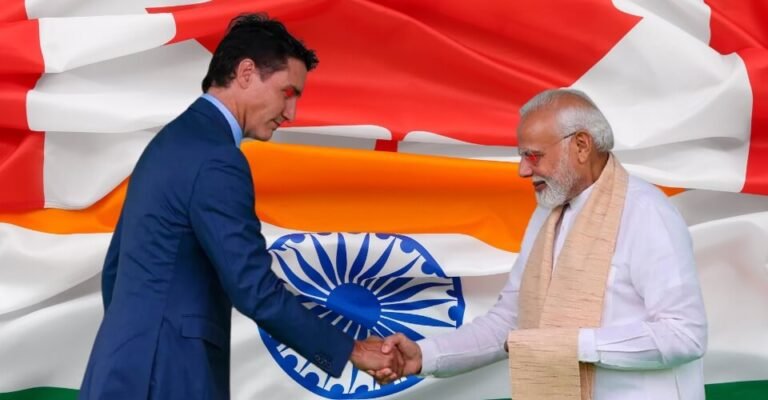The G20 Summit on September 9 in New Delhi, India, invited global leaders to discuss “One Earth, One Family, One Future”, propagating healthy diplomatic relations.
The summit also witnessed a few “firsts,” such as Chief Bola Ahmed Adekunle Tinubu, the first Nigerian President to attend the event. The summit was cordially hosted by Indian Prime Minister Narendra Modi, who greeted the world leaders.
But amidst the usual heart-warming Indian hospitality turned low-key hostility upon the arrival of Canadian Prime Minister Justin Trudeau. While the other leaders engaged in formal bilateral conversations with Mr. Modi, the discussion with Mr. Trudeau was marred with words of caution of “continuing anti-India activities of extremist elements in Canada.”
The controversy between India and Canada surfaced after Canadian Prime Minister Justin Trudeau publicly announced in a parliament session on September 18 that they had “Credible Evidence” that Indian Government agents had assassinated the Sikh Canadian leader Hardeep Singh Nijjar. The Indian government has denied these allegations and called them baseless.
And the root of this tension can be traced back eight years.
What Is the Issue with Canada and India?
2015: Trudeau earned his seat as the Prime Minister of Canada. However, the political stress felt between the two countries over the four Sikh ministers amidst the rising Khalistan movement. This separatist movement, which originated in the 1980s in India, implied a sole Sikh homeland. In pursuit of Sikh independence from India, a few Khalistanis vandalized a Hindu temple in Canada with graffiti “Death to India.”
2018: Trudeau visited India. But his delegation, including a Sikh contingent, met Jaspal Atwal. Trudeau was criticized for this trip since Atwal was convicted of attempted murder. He was also declared a pro-Khalistani terrorist.
July 2020: Indian authorities declared Hardeep Singh Nijjar a wanted man and designated him a terrorist. Nijjar strongly advocated for the Khalistan movement.
[May or may not have relevance to the subject] 2020-2022: Sidhu Moose Wala, a Punjabi icon, released a single, “Panjab: My Motherland,” in 2020 to support the farmers’ protest in India, which also had fragments of Khalistan supporters in the late 80s. He was deemed a pro-Khalistani, although he never agreed with these claims. In 2022, Sidhu Moose Wala was shot dead. A Canadian gangster, Goldie Brar, took responsibility for his murder.
Early 2023: The Indo-Canadian relations seemed to get better with strengthening commercial ties and strategic convergences.
What Happened Between Canada and India?
June 18, 2023: Prominent Sikh Canadian leader Hardeep Singh Nijjar was assassinated.
September 18, 2023: Justin Trudeau announced at the Canadian Parliament that Ottowa was investigating and had strong proof of “credible allegation” that Indian Government agents have been involved in Nijjar’s murder. Soon after, the Canadian government expelled a senior Indian diplomat.
September 19, 2023: Trudeau’s actions sparked a nationwide outrage in India, while the government completely denied all the allegations. Then, they expelled an unnamed senior Canadian Diplomat.
What Is the Effect of Trade Between Canada and India?
The two nations were gearing up to make new agreements for the outlines of a trade deal by the end of 2023. But after the incident, the trade deal was halted– Canada remained tight-lipped, and India remarked “certain political developments.”
India and Canada had maintained cordial trade relations as the former remains Canada’s tenth-largest trading partner.
2022: The two countries agreed on a bilateral trade of C$13.7bn out of a total of C$1.52 trillion of all Canadian trade.
Meanwhile, the Canadian diplomat row catapulted the deteriorating trade relations for the future. Congress MP Shashi Tharoor said–
“We are seeing a tit-for-tat on both sides. First, on the expulsion of a diplomat and then on this advisory…I think it is unfortunate that Canada chose such a public route. If at all they have any issue, these matters should be discussed privately with a friendly govt like India, and the matter should be discussed behind closed doors. Going public, making a statement in the Parliament was very unfortunate by the Prime Minister (Justin Trudeau), and having gone that far they (Canada) have really jeopardized the state of a very good relationship…”
How Many Sikhs Are There in Canada?
Canada is the country that harbors the most number of Sikhs, which is also the largest overseas community of Indian origin of around 1.4 million out of an overall 40 million Canadian population.
There are around 800,000 Sikhs in Canada, with the majority having voting rights. In the latest update, the Indian government has issued an advisory for Indian students–
What are your opinions on this? Do you think Trudeau took a bold step? Will the tit-for-tat situation end the Indian-Canadian relationship?
Are Indians safe in Canada? Let us know in the comments section below.



Recent Comments